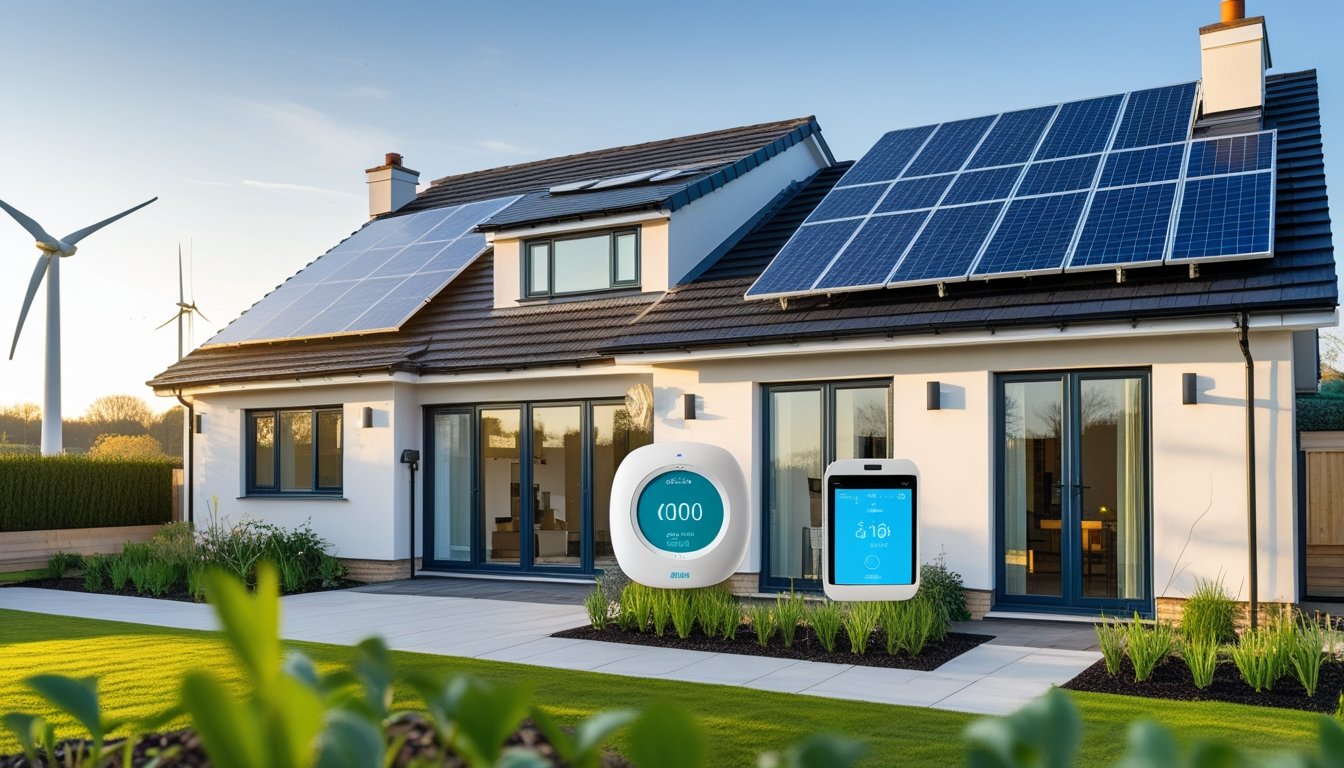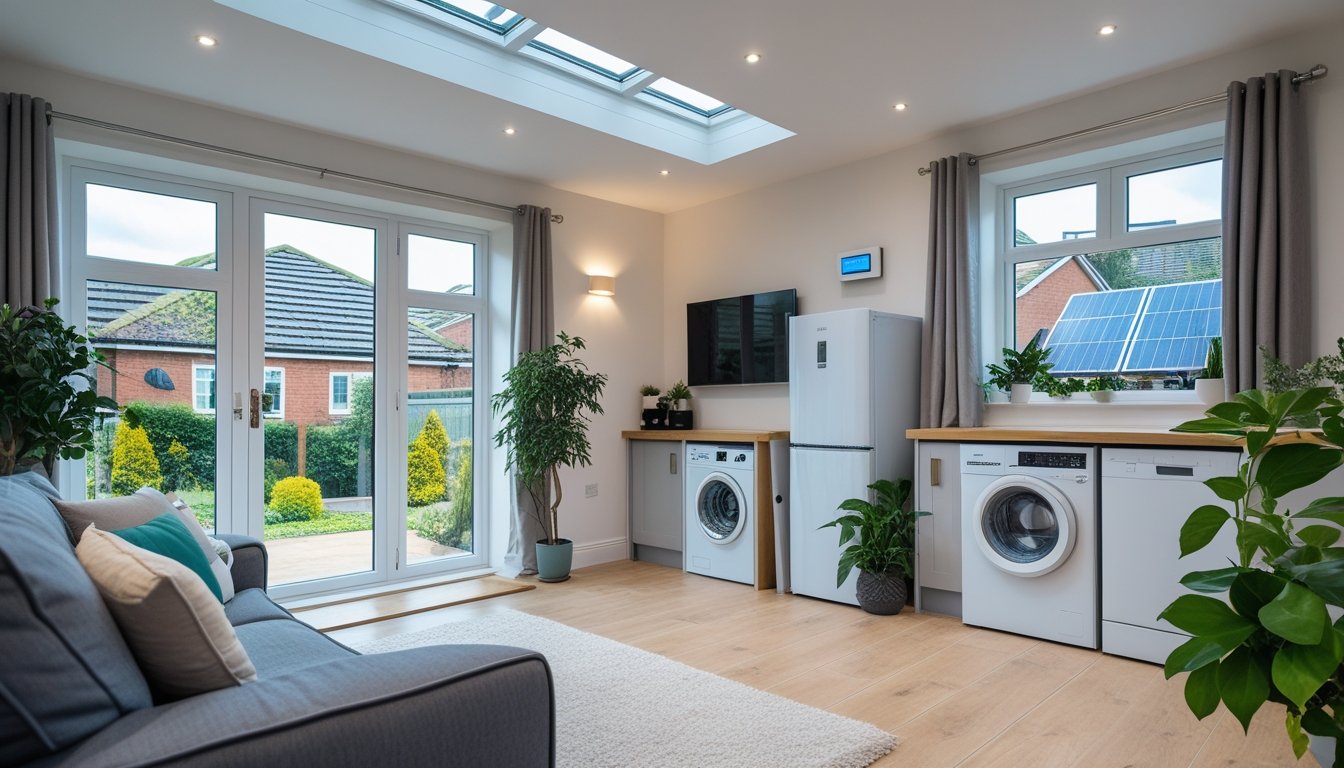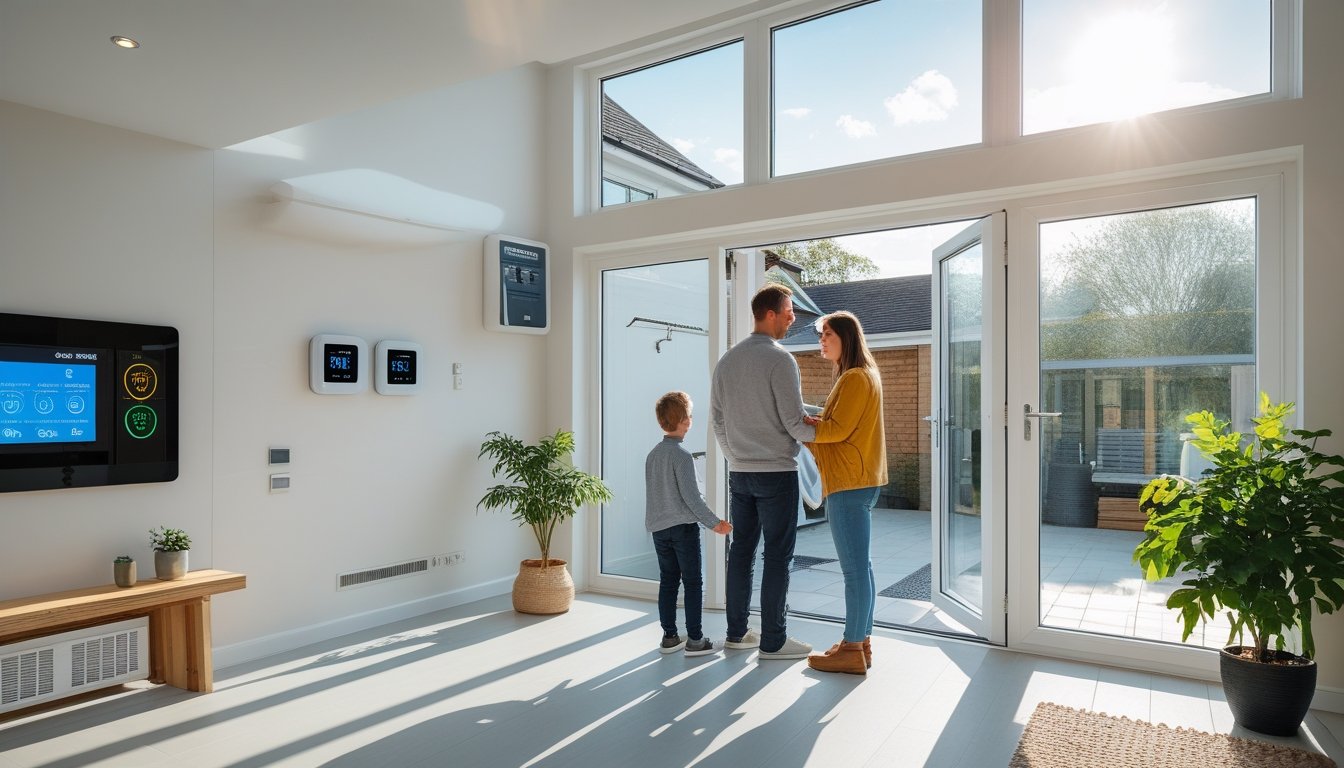Late updated: 14 Oct 2025 10:10
Written by: Eleanor Hartman
The Importance Of Energy Efficiency In UK Homes: Boosting Sustainability and Savings
Energy efficiency in UK homes is more important than ever, given the urgent need to reduce carbon emissions and combat climate change. As one of the oldest housing stocks in Europe, the UK faces a significant challenge in improving the energy performance of its homes. By upgrading energy efficiency, not only do we reduce the carbon footprint, but we also lower energy bills and make our living environments more comfortable.

A major driver behind this focus is the government’s commitment to achieving net-zero carbon emissions by 2050. With heating accounting for a significant portion of residential emissions, updating insulation, windows, and heating systems becomes imperative. Investment in these upgrades not only aligns with environmental goals but also yields long-term financial benefits for homeowners.
Public initiatives and programmes are stepping up efforts to support these changes, making information and resources more accessible. By understanding and implementing effective energy efficiency measures, we can collectively make a substantial impact. The benefits ripple beyond individual homes, contributing to broader societal and environmental gains.
Key Takeaways
- Energy efficiency reduces carbon emissions and lowers bills.
- Home upgrades support the UK's net-zero goals by 2050.
- Public initiatives provide resources for energy improvements.
Key Drivers And Benefits Of Energy Efficiency In UK Homes

Improving energy efficiency in UK homes offers numerous advantages, such as lowering energy bills and reducing carbon footprint. The primary drivers include regulatory standards and consumer demand for more sustainable living. Understanding these key aspects reveals how energy efficiency can significantly benefit both homeowners and the environment.
Reducing Energy Consumption And Costs
Energy efficiency in homes leads directly to reduced energy consumption. By mitigating the reliance on fossil fuels, we not only contribute to energy savings but also decrease household utility bills. Many UK homes incur high expenses due to inefficient heating systems and lack of proper insulation. Addressing these shortcomings means families can save significantly over time.
The implementation of measures like upgrading insulation and installing smart thermostats can improve home efficiency. Households can expect a noticeable drop in costs, providing a direct financial incentive to invest in energy-efficient upgrades. By focusing on these practical solutions, we empower ourselves to make smarter choices that impact our wallets and resource use.
Environmental Impact And Carbon Emissions
Reducing carbon emissions is crucial in fighting climate change, and energy efficiency plays a vital role in this effort. The UK's housing stock, one of the oldest in Europe, contributes significantly to the nation's carbon footprint. By improving home energy efficiency, we not only reduce emissions from household energy use but also decrease the overall environmental impact.
Enhancements in efficiency lower the reliance on non-renewable energy sources, encouraging cleaner and greener living. As homes become less dependent on fossil fuels, the reduction in emissions aligns with governmental targets for a more sustainable future. These efforts contribute to global goals of reducing carbon emissions for healthier ecosystems.
Energy Efficiency Ratings And Standards
Energy Performance Certificates (EPCs) are essential in assessing the efficiency of UK homes. These certificates rate properties from A (most efficient) to G (least efficient). Our understanding and adoption of these ratings provide clear indicators of where improvements are needed. EPC ratings are crucial when buying or renting a home, as they reflect potential savings and environmental impacts.
Most homes in Great Britain still have lower ratings, indicating a need for improvements. By adhering to stricter standards and embracing energy-efficient technologies, we can better meet and exceed current efficiency ratings. These practices are not only advantageous for property owners but also for the wider community striving for sustainable progress.
Effective Measures And Programmes For Improving Energy Efficiency
Our focus in enhancing energy efficiency in UK homes revolves around targeted insulation, government-backed schemes, and improved heating systems. By understanding and implementing these strategies, we can significantly reduce energy consumption and costs. Here’s how we approach energy efficiency improvements.
Insulation Strategies For UK Homes
Insulation is crucial for maintaining heat within a home, leading to reduced energy consumption. Cavity wall insulation is effective for homes built since the 1920s, filling wall gaps to prevent heat loss. Loft insulation is important as heat rises, and properly insulating lofts can lead to substantial savings. Wall insulation, whether internal or external, provides comfort and efficiency, reducing energy bills and enhancing living conditions.
Government Initiatives And Support Schemes
In the UK, several government programmes support energy efficiency upgrades. The Energy Company Obligation (ECO) requires large energy companies to fund improvements. The Green Deal allows homeowners to pay for upgrades via savings on energy bills. Various other schemes provide grants or low-cost loans, making energy efficiency measures more accessible to all. These initiatives are vital for widespread adoption.
Upgrading Heating Systems And Appliances
Modern heating systems and energy-efficient appliances can drastically reduce energy use. Condensing boilers are highly efficient, capturing waste heat for repurposing. Switching to Energy Star rated appliances ensures lower energy consumption without compromising performance. Regular maintenance of heating systems ensures they operate efficiently. Investing in smart thermostats can further optimise energy usage by adapting to our habits and routines.
Financial Considerations And Payback Periods
Understanding the financial impact is key to making informed decisions. Although the upfront costs can be substantial, UK government schemes often alleviate this burden. Payback periods vary depending on the improvements made, with wall and loft insulation often offering quick returns. By carefully assessing the costs and benefits, we can maximise the long-term financial and environmental advantages of these energy-efficient upgrades.
Frequently Asked Questions

Understanding the importance of energy efficiency in UK homes includes recognising the benefits, effective methods for improvement, and governmental support. Let's delve into these key areas.
What are the primary benefits of improving energy efficiency in British homes?
Enhancing energy efficiency reduces energy costs and decreases carbon footprints. Energy-efficient homes maintain comfortable living conditions, leading to improved health and wellbeing. Additionally, they contribute to environmental sustainability by lowering emissions.
How can homeowners reduce energy consumption without significant investment?
Simple actions like turning off lights when leaving a room and using energy-efficient appliances can make a difference. Regular maintenance of heating systems and sealing draughts can also conserve energy. Switching to LED lighting is another cost-effective measure.
What role does insulation play in enhancing the energy efficiency of residential properties?
Proper insulation keeps homes warmer in winter and cooler in summer, reducing the demand for heating and cooling. Insulating walls, roofs, and floors effectively prevents heat loss. It's a critical step towards significant energy savings.
Are there any government incentives available to support home energy efficiency upgrades?
Government schemes, such as the Energy Company Obligation (ECO), offer financial support for improvements. These schemes help cover costs for insulation, boilers, and more. Homeowners should check eligibility and access these incentives for energy upgrades.
How does energy efficiency impact the overall value of properties in the UK?
Energy-efficient homes often have a higher market value. Prospective buyers tend to favour properties with lower running costs and better performance ratings. Energy Performance Certificates (EPCs) can positively influence property attractiveness and sale prices.
What are the most effective first steps for a UK homeowner looking to increase their home's energy efficiency?
Conducting an energy audit provides insight into current efficiency levels. From there, prioritising improvements such as improving insulation and upgrading to energy-efficient windows and appliances will yield the best results. Starting small can lead to noticeable savings.